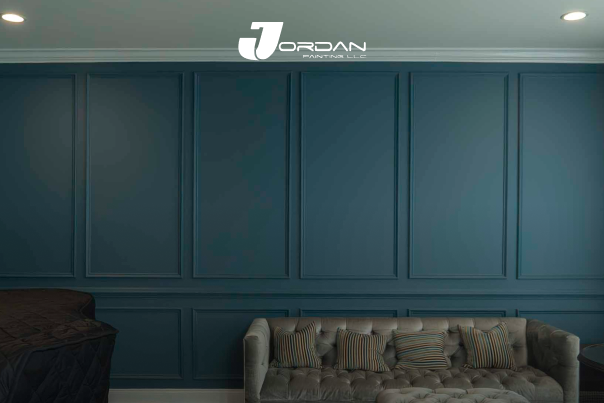DIY vs. Professional Painting: A Cost-Benefit Analysis for New Jersey Homeowners
Discover how NJ's climate impacts house paint and get pro tips on extending its life. Learn how to protect your New Jersey home's exterior from weathering with quality painting.

The Importance of Proper Exterior Painting for Homes Across New Jersey
With its diverse climate and unique architectural styles, New Jersey presents specific challenges for maintaining the exterior of your home. Proper exterior painting is more than just aesthetics; it's a vital layer of protection against NJ's weather extremes, from coastal humidity to inland temperature fluctuations.
How NJ’s Climate Affects Exterior Paint Performance
In coastal towns like Belmar or Long Branch, salt air and high humidity accelerate paint deterioration, leading to peeling and mold growth. In contrast, inland areas such as Morristown and Camden experience harsh winters and hot summers, causing paint to expand and contract. This constant cycle can eventually crack and peel paint, exposing surfaces to moisture damage.
Selecting the right type of paint and application techniques tailored for New Jersey’s climate is essential. Moisture-resistant exterior paints are optimal for coastal regions, while flexible paints that withstand temperature changes work best inland.
Step-by-Step Guide to Extending Your Paint’s Life
- Inspect and prep surfaces thoroughly—removing peeling paint, cleaning debris, and sanding rough patches.
- Choose optimal weather conditions—aim for dry days with temperatures between 50°F and 85°F.
- Apply a high-quality primer—especially on bare wood, masonry, or previously painted surfaces.
- Select the right paint products—premium exterior paints designed for NJ’s climate with added UV and moisture protection.
- Apply two coats—for even coverage and long-lasting durability.
Adapting Painting Techniques to NJ Styles
New Jersey’s housing stock ranges from historic Victorian and Colonial homes in towns like Princeton and Cape May to sleek modern builds in towns like Hoboken and Bridgewater. Each architectural style requires tailored preparation and finishing:
- Historic homes often have intricate woodwork that needs delicate handling and color matching.
- Modern homes benefit from flat, large surfaces that require durable, fade-resistant finishes.
"Quality preparation and materials tailored for NJ weather can significantly extend your paint’s lifespan — protecting your investment for years."
Why Hiring Local Experts Matters
Attempting a DIY project amid NJ’s unpredictable weather can lead to subpar results. Professional painters like Jordan Paintings LLC understand the local climate and architectural nuances. Our team ensures proper surface prep, uses climate-appropriate products, and executes painting with precision.
We have completed notable projects across towns like Montclair, Ocean City, and Ridgewood, helping homeowners protect and beautify their properties.
Maintenance Tips for NJ Homeowners
- Schedule regular inspections for peeling or bubbling paint.
- Clean surfaces to remove dirt, algae, and salt deposits.
- Promptly address chips or cracks to prevent water intrusion.
Final Thoughts
In New Jersey, a quality exterior paint job is a wise investment in your home’s longevity and curb appeal. Tailoring the approach to local climate conditions and architectural styles ensures optimal results. Whether it’s a historic house in Princeton or a beachfront cottage at LBI, proper prep and expert application make all the difference.
If you’re considering a new paint project, see how Jordan Paintings LLC’s experienced team can help keep your NJ home protected and beautiful. Learn more about our exterior painting services across New Jersey and check out our recent projects in Bergen County. Contact us today for a free estimate — your home deserves the best care, indoors and out.
Subscribe to our weekly newsletter
Reach out to us
Have a question about your next painting project in New Jersey? We're here to provide answers, offer expert advice, and schedule your free estimate.
Send us a message
Send us your questions or project details, our team will get back to discuss your painting needs.
Give us a call
Give us a call for immediate assistance or to book your free painting estimate in New Jersey.

.jpg)


